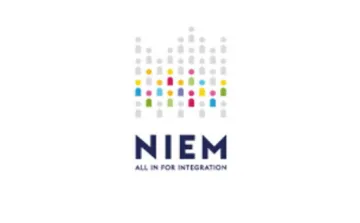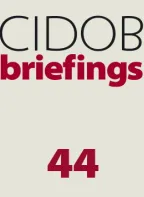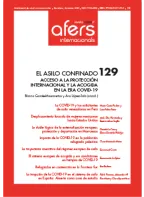NIEM all for integration
The National Integration Evaluation Mechanism (NIEM) is a six-year international project to evaluate and improve the integration of the beneficiaries of international protection. It has sought to prepare the key actors involved in integration in 14 European Union member states in order to better address the challenges arising from the so-called refugee crisis of 2015 and to improve the integration of the beneficiaries of international protection.

NIEM has established a biennial mechanism for evaluating reception and integration systems for the beneficiaries of international protection in order to provide evidence on the main gaps in integration standards, to identify promising practices and assess the effects of legislative and political changes.
It is worth noting that NIEM developed in a context of legal changes to international protection at national and European level as a result of the 2015 refugee crisis and the subsequent rise in the number of people seeking asylum in European territory. As such, the project has provided empirical evidence to inform some of the more pressing debates around these changes: are the rules on integrating the beneficiaries of international protection well implemented? What effect do these rules have on integration policies? Do policies aimed at the beneficiaries of international protection impact the success of integration? Which good practices, challenges and policy gaps need addressing?
The design of NIEM: from policies on paper to results in practice
To answer such questions, NIEM has developed comprehensive, reliable and sustainable data collection methods on the integration of the beneficiaries of international protection. This has provided evidence to support the establishment of integration policies that maximise the potential of newly arrived beneficiaries of international protection. Over 170 NIEM indicators build on and expand the European Union’s current integration standards and cover various fields and types of specialised knowledge, a range of actors and different types of evidence. It is a unique combination of indicators on inputs, policies (and sustainability) and results, making it possible to identify the most urgent obstacles to integration, from policies on paper to results in practice and from the reception of asylum seekers to equal opportunities for the beneficiaries of international protection. The indicators require different types of evidence to be analysed, including national statistics, quantitative and qualitative research, independent evaluations, internal audits and self-assessments.
NIEM has also encouraged the participation of the main actors in the integration and asylum fields: governments, local authorities, social partners and NGOs, as well as the beneficiaries of international protection themselves.
NIEM launched in 2016 with the development of pilot indicators implemented in central Europe.
From results to impact: alliances for better refugee integration
To turn NIEM’s results and evidence into tangible, concrete improvements in integrating the beneficiaries of international protection in partner countries, each project partner established national coalitions. Participants include representatives of public institutions, academia, NGOs, migrant organisations and the beneficiaries themselves, and they have sought to promote NIEM and its results in each participating country, strengthening ties between professionals, experts and key actors, while monitoring the implementation of the recommendations and advocating their mainstreaming in participating countries.
To complement the national coalitions, an international NIEM coalition was created with key European actors participating. Through this coalition, the results of the NIEM reports have contributed to policy debates and guidance on reconfiguring national and European policy solutions.
Leader: Institute of Public Affairs (Poland)
Partners:
- Migration Policy Group (MPG) (Belgium)
- Bulgarian Council on Refugees and Migrants (Bulgaria)
- Association Multi Kulti Collective (Bulgaria)
- People in Need (Czech Republic)
- France Terre d'Asile (France)
- Berlin Institute for Empirical Research on Integration and Migration, Humboldt University (Germany)
- Menedék - Hungarian Association for Migrants (Hungary)
- ISMU Foundation (Italy)
- Providus (Latvia)
- Diversity Development Group (Lithuania)
- Maastricht University (The Netherlands)
- Ministry of the Interior and Administration; Ministry of Family, Labour and Social Policy; Institute of Social Prevention and Resocialisation, the University of Warsaw (Poland)
- Centro de Estudos Sociais, University of Coimbra (Portugal)
- The Foundation for an Open Society Romania, The Centre for Public Innovation (Romania)
- Peace Institute (Slovenia)
- Barcelona Centre for International Affairs (CIDOB) (Spain)
- Malmö University (Sweden)
Researchers involved in the project:
- Elena Sánchez-Montijano
- Juan Ramón Jiménez-García
- Olatz Ribera-Almandoz
- Berta Güell






